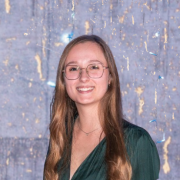Status
Scientific disciplines
Research direction
Catalysis, Biocatalysis and Separation
Affiliate site
Lyon
Greenhouse gas emissions are one of the main research areas at IFPEN. Through the solutions panel for reducing such emissions, Carbon Capture and Storage (CCS) represents between 15 to 30% of the total required work to achieve, following the different constructed models for climate prediction. This important challenge claims for continuous innovation and development of more efficient solutions for a large and accelerated technology deployment. Thus, in order to imagine tomorrow CCS systems, precipitating technologies could provide certain advantages and give access to new lever in contrast with conventional aqueous amine technologies, as for instance, a lower toxicity or corrosion potential. However, these precipitating systems are less mature and require deeper investigations to identify the key parameters impacting CO2 capture performances.
In that respect, the proposed transversal problematic here is to investigate first, systems of strong precipitation potential with a high throughput microfluidic ship approach to measure several parameters impacts following the study perimeter. Microfluidic experiments allow the characterization of restricted volumes and can accelerate experimental program.
After the study of key parameters and the determination of promising systems, the latter will be characterized in depth, at chemical equilibrium in larger volumes in order to obtain determining information about crystallization processes, as nucleation zone, isotherms, crystals identification or super saturation activities. The idea is also to determine a representative reactional scheme of the triphasic process.
With these acquired detailed information about the triphasic systems thermodynamics, the last objective will be to characterize the system out of equilibrium to access kinetic parameters, from the gas to the solid phase and the interaction between them. For that purpose, a model based on the experimental dynamic tests will be constructed for the estimation of main kinetic parameters. In that respect, the proposed transversal project aims to increase the understandings about the parameters governing precipitating systems for CCS, from the microfluidic observation of selected species to kinetic modelling. These information are essential for further development and scaling up the process.
Keywords: CO2 capture and storage, CCUS, Crystallisation, Absorption, Kinetic, Modelling, Microfluidic
- Academic supervisor Dr, TAYAKOUT FAYOLLE Mélaz, Laboratoire d'Automatique, de Génie des Procédés et de Génie Pharmaceutique, ORCID :0000-0002-0667-3535
- Doctoral School ED 206 : Ecole doctorale Chimie, Procédé, Environnement, https://www.edchimie-lyon.fr/
- IFPEN supervisor Dr, PÉTAUD Guillaume, Separation department, guillaume.petaud@ifpen.fr, ORCID : 0000-0002-3227-8563
- PhD location IFP Energies nouvelles, Lyon, France
- Duration and start date 3 years, starting in fourth quarter 2023
- Employer IFP Energies nouvelles, Lyon, France
- Academic requirements University Master degree chemical sciences
- Language requirements Fluency in French or English, willingness to learn French
